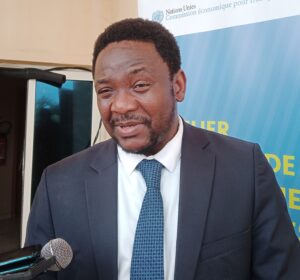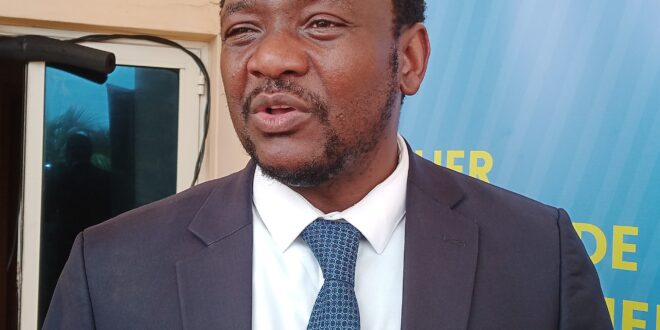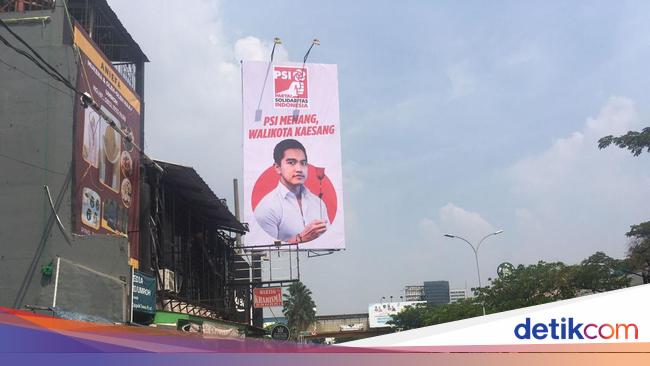116 Views
Professor Latif Dramani, Coordinator of the Regional Consortium for Research in Generational Economics (GRECG) and Coordinator of the Research Center in Applied Economics of Thiès.
Coordinator of the Regional Consortium for Research in Generational Economics (GRECG) and Coordinator of the Research Center in Applied Economics of Thiès, Professor Latif Dramani talks about his collaboration with the United Nations Economic Commission for Africa (ECA) in this case with the ECA Sub-Regional Office in West Africa (BSR/ECA/WA). Specialized in issues of population economics, that is to say issues that take into account the youth, the elderly and the economy of domestic work and specialized education. Here, Prof Latif Dramani returns to the themes developed at the Cotonou regional workshop.
Interviewed: Aline ASSANKPON
L-Integration.com: At the launch of this regional workshop on Budgeting Sensitive to the Demographic Dividend (BSDD), you made an introductory presentation before distributing the participants by country for the group work. Can you summarize your presentation in more simple and digestive terms for our readers?
Prof. Latif Dramani: Let it be remembered that in 2016, African Heads of State took a resolution called the Addis Ababa Demographic Dividend roadmap. It is a question of seeing how to use the potential of young people and women for the development of Africa. And in this sense, we, as a Research Centre, at the continental level, we support ECA, UNFPA and other development partners to build the capacity of countries on programming, budgeting for this demographic dividend.
In what we have just presented, these are the first results that we have in the various countries. This is actually to show how the Budget is formulated. The Budget being the instrument par excellence of policy at the level of each country. Everything is done with money and resources. If you don’t have this resource, you cannot build infrastructure, create jobs, or implement your vision as a policy, if you are Head of State or Government.
Budgeting Sensitive to the Demographic Dividend (BSDD) is a tool that allows us to give the situation of the allocation of the budget of our countries over the last 10, 15 years. So, it makes it possible to give to the public authorities and civil societies, the Development Partners – it allows everyone to know how the last 10 or 15 years, public resources have been allocated.
Let us remember that the first thing is the State Budget which finances most of the infrastructures in our country, the roads, the markets, all the major infrastructures, the ports, the hospitals, the Universities. All of this is done with public money, by definition it’s money that belongs to everyone, it’s taxpayers’ money. This is why it goes through the National Assembly.
The management of public funds depends on the executive, which we observe, with the increase in the population in our African countries mainly, there is what is called, significant demographic pressure on resources. And this pressure is felt by the decision-makers: that is to say that today, you are building schools, maternities, but there is still demand.
The question that is already being asked is this: “Is the allocation of resources made over the last 15 years, in what context is it made? And currently, what projection is made for the next generations? Because an individual who is born, you can no longer do anything, either you support him or he brings you a bonus because he is going to work and you create conditions for him to work and in this case, you win.
In other words, are you trying to see if the allocation of resources that is planned takes into account the galloping demography, that is to say the number of the population?
Exactly ! If you build a road today in a country where the population is one million, that road will not take the same time to be repaired in a population of five million. Because the demographic pressure on this road infrastructure is strong, there is a strong demand. This is what we are trying to do with this training, we are enabling countries to take into account this demographic pressure on expenditure.
Is it for future expenses?
Current and to come! Because, what is interesting in the demographic analysis, each individual who is born, the parents are obliged to support it. But beyond the parents, society also has to support it in terms of what it brings you. A child who is born brings you either a bonus from the education system, health or opportunities; either it drifts and it is also for everyone. And that is all that is taken into account.
The demographic pressure is there today, and when we talk about the pressure today and for generations to come. The programming that is done in this direction is called: Responsive Budgeting to the demographic dividend. It’s for today, tomorrow and the day after tomorrow. All of this is reflected in the African Union’s Agenda 2063. An Africa that uses the potential of women and young people.

pH: dr: We provided ad hoc expertise and ECA will continue the day-to-day monitoring process.
And what do you call retropolation?
Retropolation is the fact of looking back to better jump; it is considered the experience we have to better prepare for the future.
Regarding the issue of retropolation, what can we learn from West African countries after your studies?
We present the results over the last ten years concerning retropolation on the allocation of budgets to the different functions of our countries. On the issues of human capital, our countries are making a lot of effort, however, there is still a lot of effort to be made. In most countries, on issues of budgetary functions, they put a lot of resources but they can still do better. On the issues of construction, energy, we still need a little more. The structures show that it is difficult to add value in our countries because of energy costs. Man is complex, you have to have a well-made head, a full stomach and also the strength to move forward with infrastructure and it is the role of the State to put in place road and health infrastructure (hospitals schools, universities, etc.).
In the current context where the implementation of the ZLECAf is advocated, what impact will budgeting sensitive to the demographic dividend (BSDD) have on the economy of our countries?
In fact, the BSDD will rather accelerate the process of implementing the ZLECAf. The fundamental question here is the resources that we have and then, to go in search of additional resources, we must first manage what we have. If we manage the resources we have well, we will know the challenges ahead. A man who is ill and who knows his disease is already half cured: because he knows the treatment adapted to his disease.
So that allows within the framework of the ZLECAf, where am I going to get what I’m missing; because the AfCFTA is about exchanges with others. But here, the internal resources that we must have managed well appear like a house: I know that I lack this or that thing that represents my need, but the other, I do not need.
Palso tell us about the process of connecting the DDMI. And give us this acronym.
The DDMI (Demographic Dividend, Monitoring Index) in French, Demographic Dividend Monitoring Index. It is a mechanism that is on the roadmap of the African Union and in collaboration with the ECA, we are trying to empower countries for its implementation in the formulation of budget expenditures in order to successfully capture the demographic dividend. . So it is necessary to set up this monitoring mechanism, then to train the executives of our countries and finally to connect everything that has been formulated at the political level to this mechanism, that is to say, to tie it to the Budget.
Politics is sensitive to the Budget, which is the decisive instrument par excellence.
So when we talk about retropolation and splicing, it’s basically the same terms. It’s a methodology that consists of moving forward by looking a little in the rear view mirror to see how we were doing, see what good practices are, what is well done that we can continue and what is badly done and we correct.
Finally, we want to know whether you have planned a monitoring and evaluation mechanism to monitor the application of these tools at the level of each country?
We are a research center that supports ECA, so the monitoring and evaluation mechanism will be done with ECA. It is its mandate to support the countries. We provided ad hoc expertise and ECA will continue the day-to-day monitoring process. These documents will pass to the National Assembly, to the Government, to tell these different people here is the document that we have drawn up to align the budget.
Finally, do you have the feeling that you preach in the Church and not in the desert.
Everything that falls within the scope of the public, concerns us. The executives gathered in Cotonou are all concerned because it is their country and they want their countries to move forward; they understand and are all interested.


